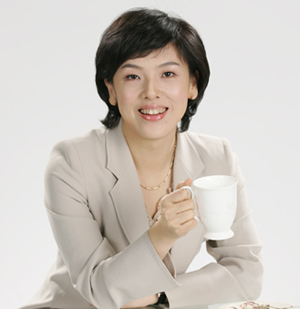 The Gazette interviewed Lee Bo-young, one of the famous English educators in Korea, and asked about the recent high interest in English-immersion, and also asked her for some advice for university students studying English to prepare for their future.
The Gazette interviewed Lee Bo-young, one of the famous English educators in Korea, and asked about the recent high interest in English-immersion, and also asked her for some advice for university students studying English to prepare for their future. Q 1. These days, many people show an interest in becoming TEE (Teaching English in English) teachers as suggested by the new government, so they spend a considerable amount of money and time on acquiring a TESOL certificate. How effective is TESOL in relation to becoming a TEE teacher?
A: First, TESOL (Teaching of English to Speakers of Other Languages) programs can come in different forms. They can be either diploma programs or simply certificate courses. Well-established TESOL diploma courses, where you can take academic courses, can surely provide a great deal of necessary knowledge in terms of linguistics and the non-language factors of foreign language teaching. Though I’ve seen many wonderful teachers who have not necessarily received any TESOL training perform very well, I must admit that some of the “greater ones” seem to be “made” and “refined” through the course. I do believe in the power and impact that TESOL can have on teachers-to-be. Good teachers should first be good learners.
Q 2. What point do you emphasize most in teaching English?
A: One of my main interests in the area of English education has always been teacher training. For well over a decade I’ve tried hard to share the belief with many - ranging from English teachers-to-be and novice teachers in the private education sector to those well-experienced teachers in the field - that it is the teachers’ dedication and committed attitude that truly makes a difference in the students. Basically, teaching falls into the category of the service industry. Customers’ satisfaction must be guaranteed, as they say in marketing, and this should be the kind of attitude that English teachers also need to have. Therefore, it is English teachers’ duty to keep reinventing themselves by researching for “better” teaching methods that have theoretical backgrounds, through diverse sources.
Q 3. Keimyung University now has a joint degree system with East Michigan University, Shanghai Normal University, and Saint-Petersburg State University; the KELI program; and overseas voluntary activities to enhance Keimyung’s global power and also to upgrade the foreign language ability of Keimyung students. What do you think about Keimyung’s global programs?
A: How amazing! I’ve been lucky enough to have witnessed such great schools in Korea that try so many wonderful systems through which their students can widen their horizons. I’m glad Keimyung University has also joined the ranks! It is my hope that the students find those programs desirable and helpful, and try to take full advantage of them.
Q 4. It is an undeniable fact that local universities, unlike the universities located in Seoul and Gyeonggi province, have heavy pressure in regard to English. Could you suggest some ideas for students in local universities to improve their self-confidence in English?
A: English is just a skill which we use to achieve our goals! So please do not think that your whole life depends upon your English ability! There’s so much more to work on in life than just trying to become like a “native English speaker.” It’s just not worth it! Instead, keep in mind that, since English is a method for communication like I have just said, having a firm basic grounding in vocabulary and grammar - especially word order and general sentence structure - is important. That is, just try to make sure that your English level is being able to write/read/listen to/speak English at the level of around 60 to 70% of your first year middle school English textbook’s content. Choosing relatively easy materials to read/listen to is also utterly important especially in the early stages.
Q 5. You are a well-known celebrity who has studied English only in Korea by yourself. To have such a fluent command of English, from your point of view, do you think studying abroad is an essential precondition for learning a foreign language? Next, I want to ask you if you can tell us your own secret of “English Success.”
A: I do firmly believe what really counts more than anything else in learning English efficiently is the learner’s attitude, which can be affected by so many factors such as teachers, friends, study mates, books, TV, movies, etc. In that regard, I can safely say that all my English teachers should take credit for what I’ve become today. By “teachers” I mean not just those teachers I’ve met at school but also those wonderfully talented English speaking people I’ve worked with. Also, I believe I have pretty good “ears.” I tend to be very attentive during a conversation, even casual ones, with native-English speakers and compare their language with mine - for example, the way they choose vocabulary and sentence structures. Another thing that I do is keep asking questions. I’m not shy in saying, “Sorry, I’m not sure if I understand what you just said. What do you mean by?”
Q 6. If you have your own favorite motto, could you let us know what it is? Finally, please leave an impressive message to university students in Korea.
A: We can only keep learning from others. As an old saying goes, you can always find your teacher even in the company of just three people. Trying to be confident is of course a good thing but constantly checking your own English level and making sure you’re trying to improve even a little is just as important.
By Lee Jung-hwa
KMG Full-time Advisor
she2007@kmu.ac.kr
KMG Full-time Advisor
she2007@kmu.ac.kr








